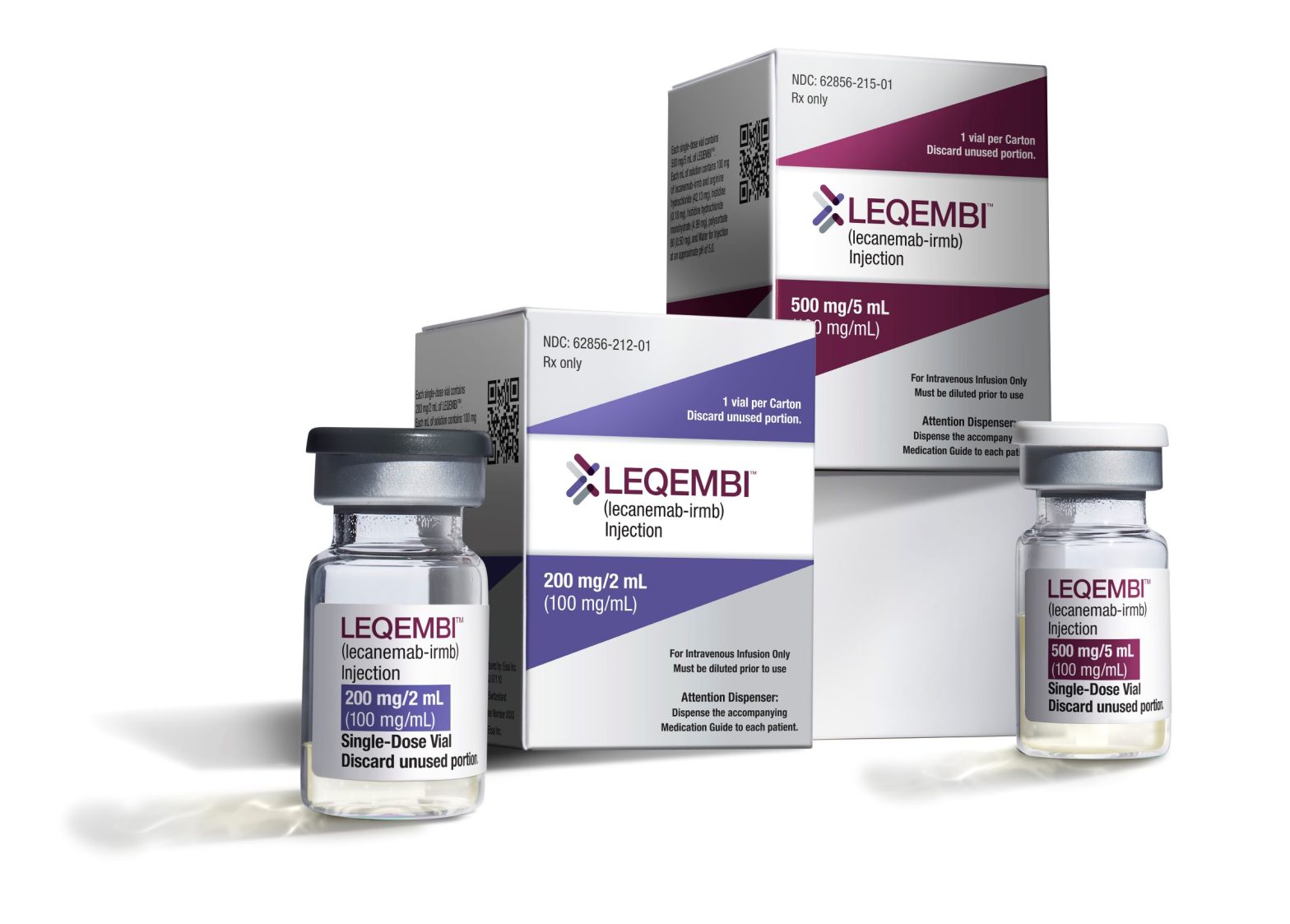FDA Approves First Drug to Slow Alzheimer’s Progression

WASHINGTON — The Food and Drug Administration on Thursday gave its first approval to a drug that can slow the progression of Alzheimer’s disease.
In a press release the agency said its full approval of lecanemab, known by the brand name Leqembi, was based on a determination that a confirmatory trial verified a clinical benefit of the medication.
Now that Leqembi has moved from the accelerated approval pathway it has been on since January to traditional approval, it is expected to open the door to treatment for millions of patients for whom that had not been an option in the past.
The drug, an amyloid beta-directed antibody, works by reducing amyloid plaques that form in the brain, a defining pathophysiological feature of the disease.
The accelerated approval pathway allows the FDA to approve drugs for serious conditions where there is an unmet medical need, based on clinical data demonstrating the drug’s effect on a surrogate endpoint — in the case of Leqembi, reducing amyloid plaques in the brain — that is reasonably likely to predict a clinical benefit to patients.
As a postmarketing requirement of the accelerated approval, the FDA required the applicant — Japanese drugmaker Eisai and the U.S.-based biotech firm Biogen — to conduct a clinical trial, often referred to as a confirmatory study, to verify the anticipated clinical benefit of Leqembi.
The efficacy of Leqembi was evaluated using the results of a phase 3 randomized, controlled clinical trial.
“Today’s action is the first verification that a drug targeting the underlying disease process of Alzheimer’s disease has shown clinical benefit in this devastating disease,” said Teresa Buracchio, acting director of the Office of Neuroscience in the FDA’s Center for Drug Evaluation and Research, in a written statement.
“This confirmatory study verified that it is a safe and effective treatment for patients with Alzheimer’s disease,” she said.
Chris Viehbacher, chief executive of Biogen, said in a statement that the FDA’s approval “marks a breakthrough in the treatment of Alzheimer’s disease.”
“We are proud to be at the forefront of ushering in a new era of advances for a disease that was previously considered untreatable,” Viehbacher continued. “We would like to express our sincere appreciation to those who have worked tirelessly to find a treatment for this unrelenting disease, without whom this progress would not be possible.”
Viehbacher said the company’s focus is now on the path forward, “working alongside Eisai with the goal of making Leqembi accessible to eligible patients as soon as possible.”
Toward that end, Eisai CEO Haruo Naito vowed to work diligently to educate physicians on the safe and appropriate use of Leqembi “to maximize its benefit to people living with early AD and their families.”
“Alzheimer’s disease is a progressive, fatal disease that greatly impacts not only the people living with it, but also their loved ones, care partners and society. We continue to work to create broad and simple access to Leqembi for patients and to support diagnosis and treatment at the early stage of the disease,” Naito said.
More than 6.5 million Americans suffer from Alzheimer’s, which along with other forms of dementia will cost the U.S. about $345 billion this year, according to the Alzheimer’s Association.
“This treatment, while not a cure, gives people in the early stages of Alzheimer’s disease more time to maintain their independence and do the things they love,” said Joanne Pike, the organization’s president and CEO, in a statement.
“While we continue efforts to discover new targets and test new treatments, people living with this fatal disease deserve the opportunity to discuss and make the choice with their doctor if an FDA-approved treatment is right for them,” Pike said.
Dan can be reached at [email protected] and at https://twitter.com/DanMcCue

























